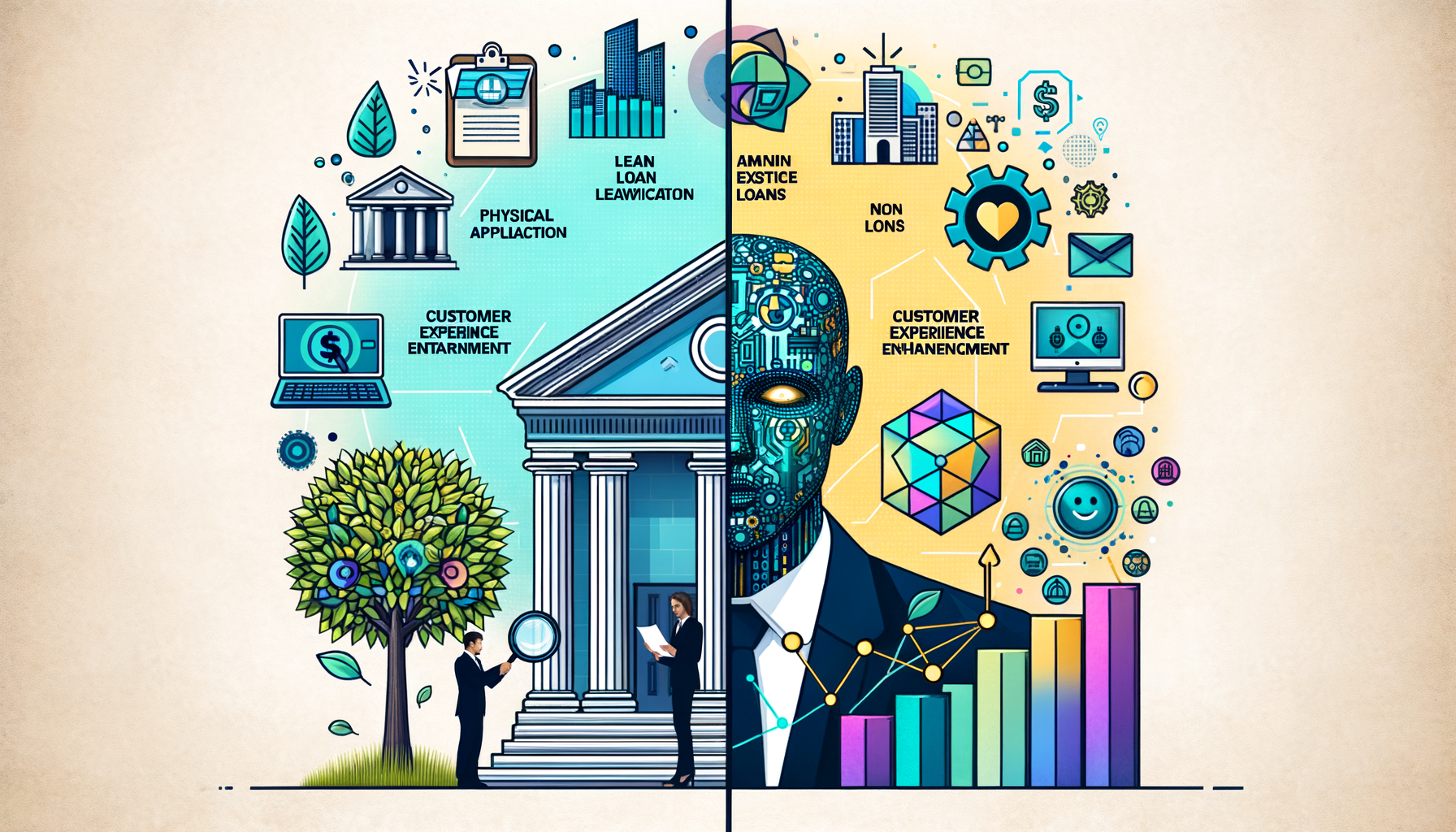“Exploring Industry Trends: A Comprehensive Peek into Real Estate Finance and Mortgage Markets”
Innovation is the beating heart of the modern mortgage industry, dynamic and critical in maintaining the flow of the mortgage process today. The introduction of blockchain technology, for instance, brings with it transparency, security, and efficiency, potentially revolutionizing the industry by simplifying processes, reducing fraud, and speeding up transactions.
### The Advent of Blockchain in Mortgage Processes
Blockchain, the technology underpinning cryptocurrencies like Bitcoin, involves a digital ledger that is both secure and transparent. Its integration into the mortgage industry could streamline the cumbersome processes that dominate traditional mortgage transactions. With blockchain, every step of the mortgage process, from origination to funding and servicing, could be recorded in a way that’s virtually tamper-proof and easily verified, potentially eliminating the need for intermediaries and reducing costs and transaction times.
### Cutting-Edge Technology: Artificial Intelligence and Machine Learning
In addition to blockchain, the surge of artificial intelligence (AI) and machine learning (ML) in mortgage servicing cannot be understated. These technologies have the ability to reshape every facet of mortgage processing, from underwriting to customer service interactions.
AI-powered platforms can analyze vast amounts of data faster and more accurately than humanly possible. For underwriting, this means more precise risk assessments and potentially faster loan approvals. Machine learning, a subset of AI, enables systems to learn from data patterns and improve over time, thereby continually enhancing the accuracy of predictions about borrowers’ behavior and loan performance.
Personalized customer service is another area where AI is making significant strides. Chatbots and virtual assistants equipped with AI can handle routine inquiries and transactions, freeing up human agents to deal with more complex issues. This not only improves efficiency but also enhances customer satisfaction by reducing wait times and providing round-the-clock service.
### Regulatory Changes and Compliance
Navigating the maze of regulations is another perennial challenge in the mortgage industry. Recent regulatory adjustments aim to ease some restrictions, potentially stimulating the housing market. Nevertheless, maintaining compliance remains a daunting task for many lenders and servicers. Technology solutions that automate compliance checks and keep real-time track of regulatory updates are becoming indispensable in the modern mortgage landscape.
### The Impact of Interest Rates and Economic Shifts
Current economic conditions, characterized by fluctuating interest rates and a vigilant Federal Reserve, pose both challenges and opportunities for the mortgage sector. Interest rates, for instance, directly influence mortgage affordability and demand. As rates climb, typically, there’s a cooldown in mortgage applications; conversely, lower rates tend to spur a flurry of refinancing and home purchasing activities.
2023 saw varied interest rates, and as we traverse into 2024, the uncertainty continues. Potential homebuyers and refinancers must stay informed about these shifts, which heavily influence their mortgage decisions and opportunities.
### The Role of Non-QM Loans in Market Dynamics
The resurgence of non-QM (Non-Qualified Mortgage) loans is providing alternatives for those who don’t fit the tight constraints of traditional mortgage qualifications. These loans cater to borrowers with unique financial histories or income sources and are becoming increasingly pivotal for promoting inclusivity in the housing market.
However, non-QM loans come with higher risks compared to standard mortgages, given that they often cater to clients with lower credit scores or irregular income patterns. Lenders stepping into this space must employ advanced risk assessment tools, many of which now incorporate AI and ML algorithms to better predict loan performance.
### The Push for Environmental Sustainability
Sustainability initiatives are also influencing the mortgage industry. More lenders are integrating green mortgages, which offer favorable terms for energy-efficient home improvements. These initiatives often come with support from government programs that aim to reduce carbon footprints through better building practices and renewable energy integration.
### Technology-Driven Customer Experience Enhancements
In today’s digital age, customers expect quick and convenient service at every turn, and the mortgage industry is no exception. Technological advancements have enabled lenders to offer a more streamlined application process through online platforms and mobile apps, where customers can upload documents, see real-time updates on their loan status, and even interact with AI-driven advisors.
Moreover, post-pandemic, there is a continuing trend towards remote work and digital nomad lifestyles, which affects where and how people choose to live. Subsequently, this affects their mortgage needs and preferences. Lenders who adapt their offerings to suit these evolving requirements will likely capture a significant market share.
### The Influence of Demographics on Housing Trends
Demographic shifts, like the aging of the baby boomers and the rise of Millennial and Gen Z homebuyers, are reshaping the housing market. Each group has distinct preferences and financial capabilities, influencing home design and mortgage product offerings. For instance, younger buyers are more likely to prioritize sustainability and flexible workspaces in their homes than older generations.
### Conclusion: Navigating the Future
The mortgage industry is undergoing a period of intense transformation, driven by technological advances and shifting market demands. To stay competitive and relevant, industry stakeholders from lenders to investors, need to adapt continuously to these changes.
Embracing technologies like AI, blockchain, and machine learning will be crucial, not only to streamline operations and cut costs but also to enhance the overall customer experience. Moreover, keeping a finger on the pulse of economic, regulatory, and demographic trends will enable industry players to anticipate changes and seize new opportunities.
This vibrant landscape presents a unique set of challenges and opportunities. Those willing to innovate, adapt, and lead in the application of new technologies and processes are most likely to thrive in the dynamic world of mortgage lending.

